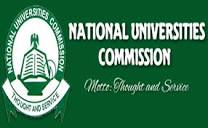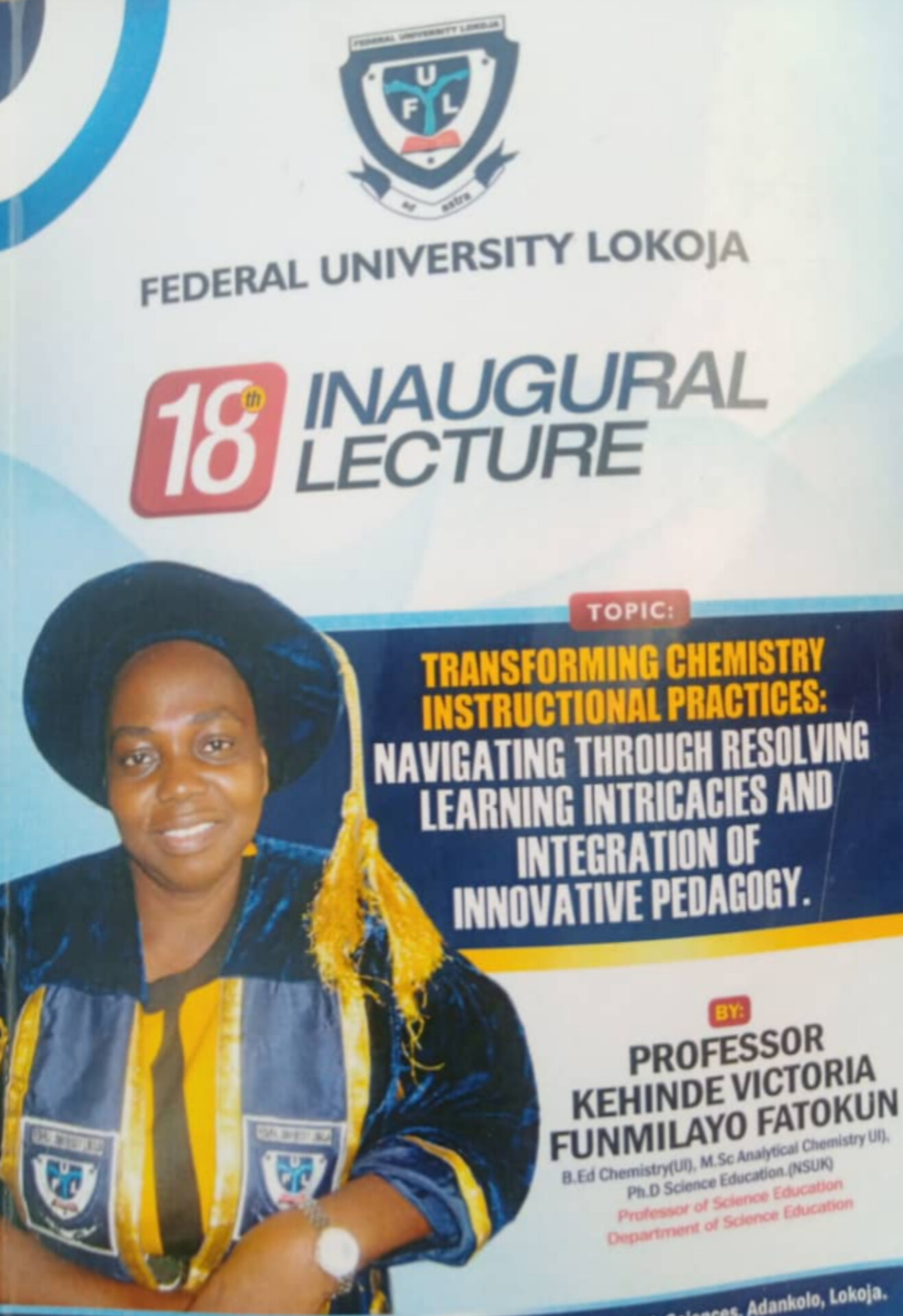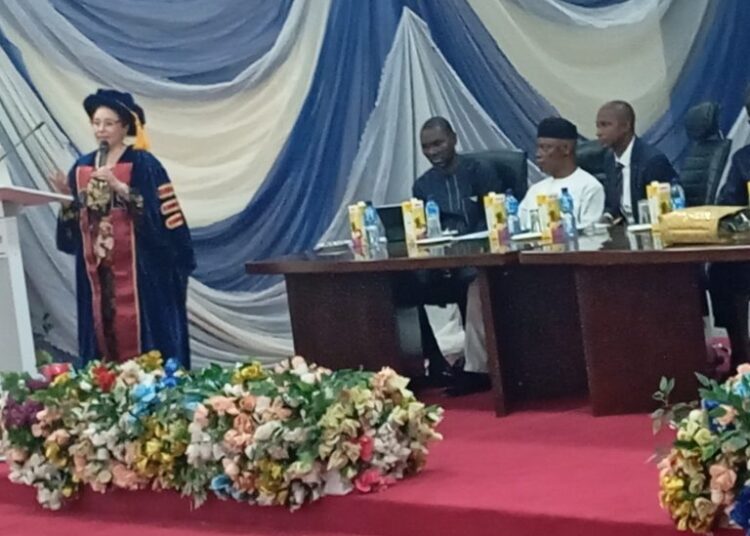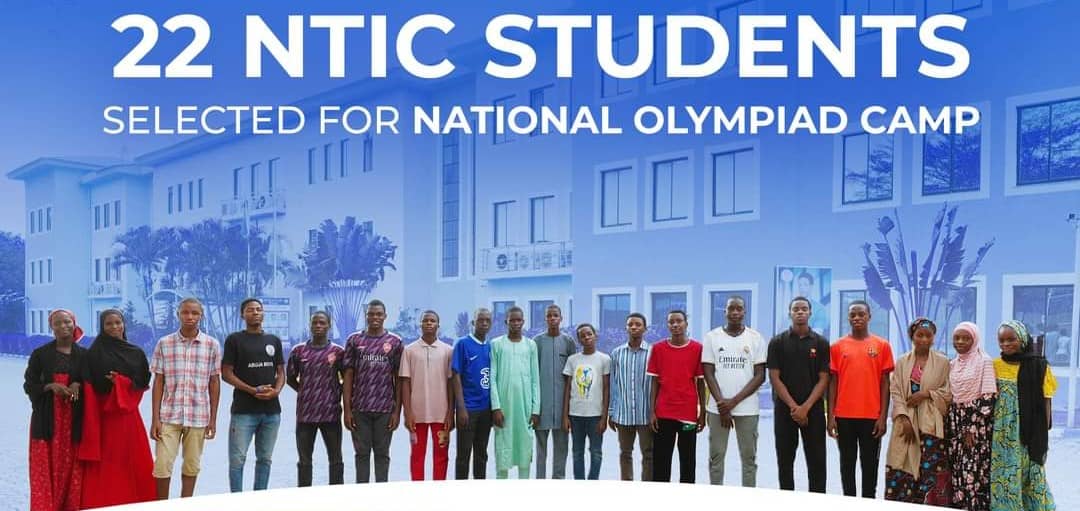Education
Continental Group Lauds NUC on reforms, new curriculum for varsities

The Higher Education Observatory for Africa (HEOFA) has applauded the efforts of the National Universities Commission (NUC) in the ongoing reforms in the Nigeria university system aimed at producing quality graduates with global appeal
According to a statement by Dr. Fred Awaah, a Ghanaian member of the Board of HEOFA, the Executive Secretary of NUC, Professor Abubakar Adamu Rasheed has led a process that has produced a new curriculum for the Nigerian university system that will be a model for other African countries.
He said: “Nigeria’s efforts at developing a new core curriculum minimum academic standards (CCMAS), is a giant step in the march to producing 21st-century graduates who will respond effectively to the developmental needs of Nigeria and be agents for achieving Africa’s Agenda 2063 and the UN Sustainable Development Goals.
“The unique features of the 17 disciplines of the CCMAS are indicative that graduates of Nigerian universities who will benefit from the new curriculum will be impressively entrepreneurial, steep in knowledge and skills to make them labour-market ready and imbued with character for exemplary leadership in the public and private sectors of the economy.
“NUC is proving itself to be a leader in Africa in blazing the reform trail and setting in motion several mechanisms for improving good governance, quality and relevance,” Awaah said.
He noted that the mission of HOEFA is to objectively showcase activities in higher education in the African continent, saying its objectives include to undertake situation analyses of developments in higher education in Africa with particular reference to access, quality, relevance, equity, effectiveness and funding; to report on performance of African countries on the attainment of regional and global development agenda; to publish reports of situation analysis at national and regional levels; to publish case studies of exemplary practices in higher education in Africa; and to undertake regional comparisons of the delivery of higher education across the world.
Speaking further on this development in Abuja the chairman of the governing board of HEOFA, Professor Emeritus Peter Okebukola, noted that “the curriculum review exercise is one of over 70 legacy projects of Professor Abubakar Adamu Rasheed, all radiating like spokes in a wheel, from the Blueprint for the Rapid Revitalisation of University Education in Nigeria (2019-2023) which is the trigger for the ongoing Rasheed Revolution in the Nigerian university system.”
According to Okebukola , “the Rasheed Revolution has been receiving global endorsement and support. For instance, the French Development Agency (AFD) and the World Bank are offering miscellaneous support for the implementation of the ten strategic goals of the blueprint.
“The American Council for Higher Education Accreditation (CHEA) and the CHEA International Quality Group are impressed about the reports of progress being made in implementing the blueprint”.
“We have started seeing evidence that the reforms are working.” Okebukola noted.
“Last week, Tristan Horlick, the Regional Manager – Africa for THE (Times Higher Education) wrote to me saying “Firstly, I would like to extend my congratulations to yourself and the Nigerian universities who have participated in the Impact Rankings this year! We have had some really impressive results from these universities with Covenant University and Afe Babalola University placing within the top 400 universities worldwide.
“The competition was fierce this year with almost 300 new institutions ranked, so this is a huge achievement for Nigeria.”
Okebukola further noted “I am delighted about the commitment of Malam Adamu Adamu, the Honourable Minister of Education to having a more stable academic calendar, better resourcing of the system and better motivation for staff. Clearly, all the forces are getting aligned to assure a glorious future for the Nigerian university system.
Education
Don urges teachers to learn, deploy AI tools in teaching

By Friday Idachaba, Lokoja.
Professor Kehinde Victoria Fatokun, a Professor of Science Education, has called on teachers to adapt to changes, learn and deploy Artificial Intelligence (AI) tools in the teaching profession.
Prof. Fatokun made the call at the 18th Inaugural Lecture series of the Federal University Lokoja (FUL) as part of her advocacy for resourceful teaching and productive learning.
The Inaugural Lecture had the topic: “Transforming Chemistry Instructional Practices: Navigating through Resolving Learning Intricacies and Integration of Innovative Pedagogy.”
She said that the world was evolving as methods and procedures continue to change with innovations and technological breakthroughs adding that the teaching profession should also adopt new technologies including the Artificial intelligence tools.
The Professor of Science Education called for the development of intensive research and knowledge transfer culture, permeating all teaching and learning activities.
She said that the development of appropriate skills in students should be paramount and learning should be made appealing to them, in order to produce competent graduates.
Prof. Fatokun stressed that Educational research findings on current pedagogical issues should not be ‘kept in the shelf’ but be made available to the ‘implementer’ in an applicable manner for solving most of the instructional challenges they often encounter.
The former HoD, Department of Science Education, Anchor University, Lagos, tasked Curriculum developers and Authors to strive at tackling issues of “difficult concepts” during curriculum reviews with the application of novel approaches.
She suggested that emphasis should be placed on simplifying instruction to demystify misconceptions while there should be flexibility in adapting the curriculum content to the global trend.
“Published books should be clear, simple to understand and all ambiguity that create additional learning concerns should be removed”, she urged.
She however urged the FUL Management team to organize workshops for all teaching staff with the aim of familiarizing them with innovations in teaching especially the use of modern techniques and learning technologies for their pedagogical skill development.
She charged the Quality assurance directorate to ensure proper monitoring of academics through specific metrics to ensure quality teaching.
Prof. Fatokun charged students to be intentional about learning, not just cramming and passing examinations adding that conscious effort should be made henceforth to ensure understanding and retention to aid the application of the knowledge gained.
Speaking earlier, the
Vice-Chancellor of the University, Prof. Olayemi Akinwumi noted that the Inaugural Lecture series of the University had become “a beacon of intellectual discourse and academic excellence, showcasing the groundbreaking research and innovative thinking of our academic Staff.”
He described the Lecture topic, “Transforming Chemistry Instructional Practices: Navigating through Resolving Learning Intricacies and Integration of Innovative Pedagogy,” as both timely and apt.
The Vice-Chancellor noted that in navigating the complexities of modern education, the need to evolve teaching methodologies that would better address the diverse learning needs of students had never been more pressing.
“In the rapidly changing landscape of higher education, the integration of innovative pedagogy is crucial for preparing our students to meet the demands of the future”, he said.
The Vice-Chancellor who declared the Lecturer as “Discharged and Acquitted” after the delivery, described the 18th Inaugural Lecture as much a celebration of Prof. Fatokun’s achievements as it is “a testament to her collective contributions.” (Ends)
Education
Inculcate critical thinking, Inspire, guide your Students – Poland Ambassador tasks teachers

By Friday Idachaba, Lokoja.
Ambassador of Poland to Nigeria, Her Excellency, Ambassador Joanna Tarnawska has called on teachers to encourage critical thinking, inspire and guide their students or listeners to become innovative problem solvers.
Tarnawska made the call as a Guest Lecturer at the 6th Distinguished Public Lecture of Federal University Lokoja titled: “How to Effectively Pass Knowledge and Inspire Students in the Contemporary World.”
The Guest Lecturer said gone are the days when teachers were seen as encyclopedia and repository of knowledge. saying, “A teacher is not an encyclopedia anymore, a teacher is a book mark, a beacon who points to the relevant paragraph.”
Tarnawska stressed that teachers must be well grounded and knowledgeable in their respective disciplines, and urged them to guide, teach on how best to gather information and get the gist.
She said, “Know your subject matter and be ready to deepen your knowledge continuously, Know your audience, adapt your language and content to the listeners.
The Envoy said that with the influx and abundance of information with the world turned a global village, it is important to know the authentic from the fake and safekeep facts, especially now that everything can be checked online.
“Encourage questions, building an atmosphere of trust will be helpful to achieve this. Modern lessons should not only be teacher centered, Keep a balance and make time for student centered lessons.
“Never ask the question, “Do you understand?”, instead, ask questions to check your students understanding, always give practical examples,
be engaging and make sure your listeners are following you”, she said.
Speaking earlier in his address, Prof. Olayemi Akinwumi, Vice-Chancellor of Federal University Lokoja, commended Ambassador Joanna Tarnawska for the promptness with which she accepted to deliver the Distinguished Public Lecture.
Prof. Akinwumi noted that the topic of the lecture, “How to Effectively Pass Knowledge and Inspire Students in the Contemporary World” is not just timely but imperative.
He said, “In an era marked by rapid technological advancements, societal transformations, and global interconnectedness, the role of education transcends mere dissemination of facts.
“It therefore behoves upon us to instill in our students a hunger for knowledge, a love for learning, and a sense of purpose that extends beyond classroom boundaries.”
The Professor of History said as Vice-Chancellor of the esteemed institution, he was keenly aware of the profound impact that effective teaching and inspirational mentorship can have on the lives of our students.
Akinwumi urged all stakeholders to reflect on how we can collectively shape the future of Education, and recommit to the noble pursuit of empowering the next generation of leaders and innovators.
He enjoined all to embrace the spirit of collaboration, innovation, and lifelong learning as we listen to the lecture together. (Ends)
Education
22 NTIC students to participate in 3-day NMC’s Olympaid Camp

The National Mathematical Centre (NMC) has selected 22 students of the Nigerian Tulip International Colleges (NTIC) to participate in a 3-day Olympiad Camp.
The Olympiad competition covers subjects such as Mathematics, Science, Arts, Music, Literature, History, Culture, Information Communication Technology among others.
The Managing Director NTIC, Feyzullah Bilgin, in a statement on Tuesday said, “In a remarkable display of academic prowess, 22 students from Nigerian Tulip International Colleges in Nigeria have been handpicked by the prestigious National Mathematical Centre (NMC) to participate in a rigorous 3-day Olympiad Camp.
“The selection of these bright minds not only highlights their exceptional mathematical abilities but also underscores the dedication and commitment they have shown towards their education.”
-

 Crime1 year ago
Crime1 year agoPolice nabs Killer of Varsity Lecturer in Niger
-

 News1 year ago
News1 year agoFCT-IRS tells socialite Aisha Achimugu not to forget to file her annual returns
-

 Appointment2 years ago
Appointment2 years agoTinubu names El-Rufai, Tope Fasua, others in New appointments
-

 News From Kogi1 year ago
News From Kogi1 year agoINEC cancells election in 67 polling units in Ogori-Magongo in Kogi
-

 News From Kogi2 years ago
News From Kogi2 years agoEchocho Challenges Tribunal Judgment ordering rerun in 94 polling units
-

 News2 years ago
News2 years agoIPOB: Simon Ekpa gives reason for seperatists clamour for Biafra
-

 Metro1 year ago
Metro1 year ago‘Listing Simon Ekpa among wanted persons by Nigeria military is rascality, intimidation’
-

 News1 year ago
News1 year agoKingmakers of Igu/ Koton-Karfe dare Bello, urge him to reverse deposition of Ohimege-Igu
